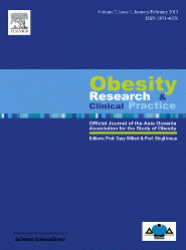Transparency is extremely important to us, so we are letting you know that we may receive a commission on some of links you click on from this page. See our disclaimer.
 Millennials & GenY of today be aware: Let's say you eat and exercise the same amount as a 25 year old did 20 or 30 years ago. You should weigh about the same, right?
Millennials & GenY of today be aware: Let's say you eat and exercise the same amount as a 25 year old did 20 or 30 years ago. You should weigh about the same, right?
According to new research in Obesity Research & Clinical Practice, that may not be the case. The study is titled “Secular differences in the association between caloric intake, macronutrient intake, and physical activity with obesity.”
The study looks at dietary data from more than 36,000 U.S. adults from “the National Health and Nutrition Survey (NHANES) between 1971 and 2008.” Physical activity data “was only available in 14,419 adults between 1988 and 2006.” Data were reviewed against ” total caloric intake, percent dietary macronutrient intake and physical activity with body mass index (BMI).”
According to The Atlantic, the authors “found a very surprising correlation: A given person, in 2006, eating the same amount of calories, taking in the same quantities of macronutrients like protein and fat, and exercising the same amount as a person of the same age did in 1988 would have a BMI that was about 2.3 points higher. In other words, people today are about 10 percent heavier than people were in the 1980s, even if they follow the exact same diet and exercise plans.”
Indeed, the study concludes: “Factors other than diet and physical activity may be contributing to the increase in BMI over time. Further research is necessary to identify these factors and to determine the mechanisms through which they affect body weight.”
Said Professor Jennifer Kuk in the School of Kinesiology and Health Science in a York University statement: “Our study results suggest that if you are 40 years old now, you’d have to eat even less and exercise more than if you were a 40 year old in 1971, to prevent gaining weight. However, it also indicates there may be other specific changes contributing to the rise in obesity beyond just diet and exercise.”
The statement adds: “The researchers point out that although several studies have shown that eating less and exercising more results in weight loss, in the long term, they are proven to be ineffective.”
“Kuk further explains that our body weight is impacted by our lifestyle and environment, such as medication use, environmental pollutants, genetics, timing of food intake, stress, gut bacteria and even nighttime light exposure. ‘Ultimately, maintaining a healthy body weight is now more challenging than ever.'”





0 Comments